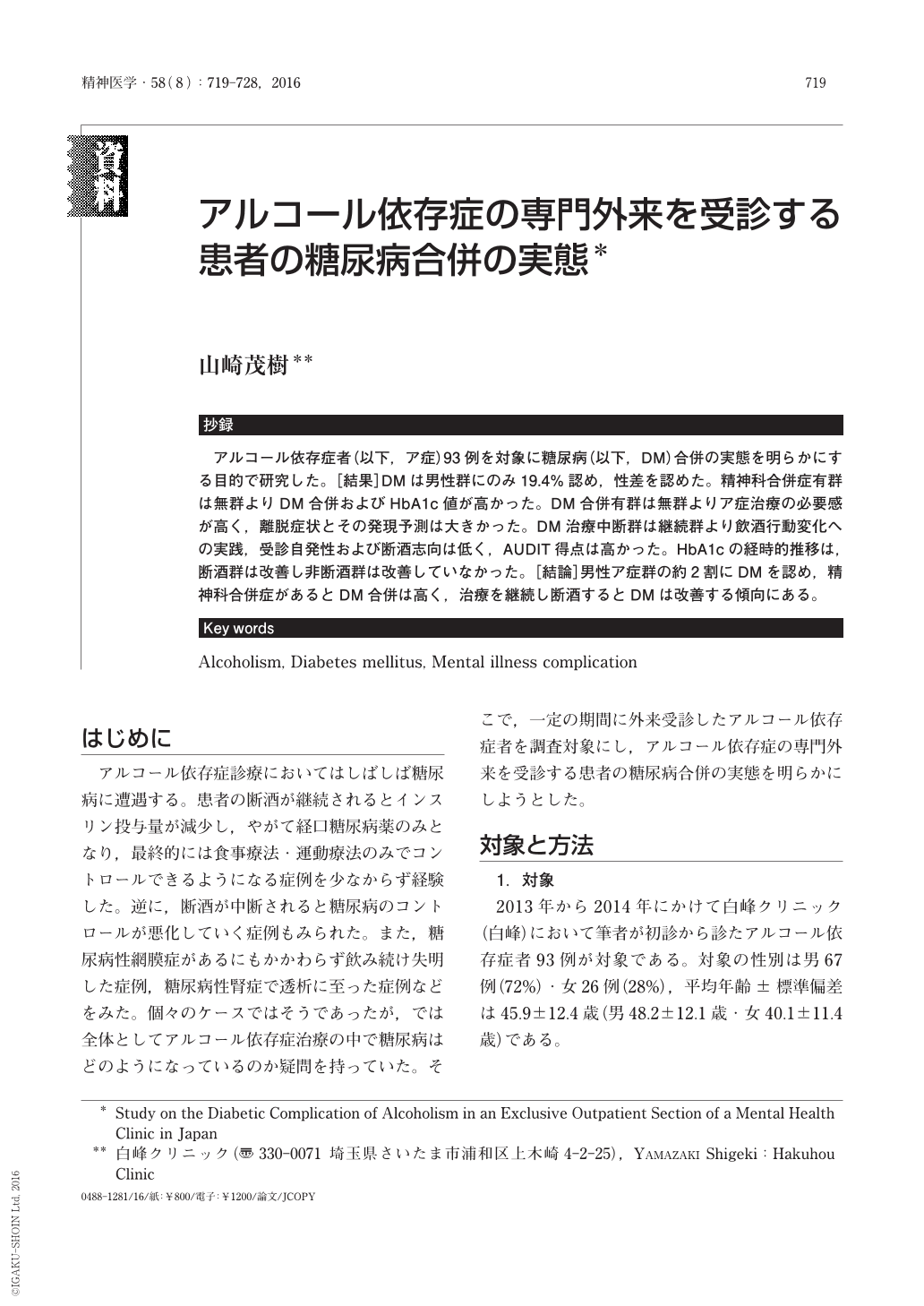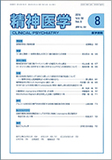Japanese
English
- 有料閲覧
- Abstract 文献概要
- 1ページ目 Look Inside
- 参考文献 Reference
- サイト内被引用 Cited by
抄録
アルコール依存症者(以下,ア症)93例を対象に糖尿病(以下,DM)合併の実態を明らかにする目的で研究した。[結果]DMは男性群にのみ19.4%認め,性差を認めた。精神科合併症有群は無群よりDM合併およびHbA1c値が高かった。DM合併有群は無群よりア症治療の必要感が高く,離脱症状とその発現予測は大きかった。DM治療中断群は継続群より飲酒行動変化への実践,受診自発性および断酒志向は低く,AUDIT得点は高かった。HbA1cの経時的推移は,断酒群は改善し非断酒群は改善していなかった。[結論]男性ア症群の約2割にDMを認め,精神科合併症があるとDM合併は高く,治療を継続し断酒するとDMは改善する傾向にある。
[Object and Methods]To study the diabetic complications of alcoholism, 93 individuals diagnosed with alcoholism were retrospectively investigated. To assess the socio-psychological state, seven scales were utilized, including the Alcohol Use Disorder Identification Test (AUDIT), the Severity of Alcohol Dependence Questionnaire (SADQ), the Stage of Change Readiness and Treatment Eagerness Scale (SOCRATES), the Self-rating Depression Scale (SDS), the State-Trait Anxiety Inventory (STAI), the Way of Coping Checklist (WCCL), and the Alcoholism Denial Scale (ADRS).
[Results]Diabetes mellitus was found in 13 of the 93 cases observed (13/93=14%). Sex differences of diabetic complication were also found (male 13/67=19.4%, female 0/26=0%). HbA1c and glucose levels of the male group were higher than the female group. Mental illness complications (MIC) were found in 42 cases (42/93=45%, F3=21%, F4=16%, F5=13%, F8=2% by ICD-10). The MIC (+) group showed higher HbA1c levels and higher diabetic complications than MIC (-) group.
With respect to the relationship between diabetic complication and socio-psychological scales, the diabetes mellitus complications (DMC) (+) group showed higher levels of therapy needs based on the ADS results, affective withdrawal, and post abstinence syndrome based on the SADQ than the DMC (-) group.
Of the 13 diabetic cases, 4 patients discontinued therapy, while 9 continued. The former group showed lower levels of initiative to change based on the SOCRATES score, a lower chance of completing voluntary therapy, and a lower intention of staying abstinent based on the ADS score, and a higher AUDIT score. Among the 13 diabetic cases, the HbA1c level improved in the abstinent group, but did not improve in the drinking group.
[Conclusion]Approximately, 20% of males diagnosed with alcoholism were diabetic. Alcoholics with mental illnesses were found to have more diabetic complications. However, when these individuals remained abstinent, diabetes mellitus was usually well controlled.

Copyright © 2016, Igaku-Shoin Ltd. All rights reserved.


